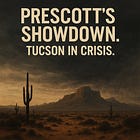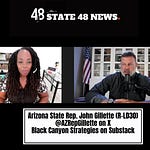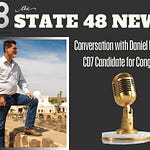“If officials can use taxpayer money to defend their own alleged misconduct, then conflict-of-interest laws in Arizona are meaningless.” — Ryan Heath
We’re following up on our previous article on Hanna v. City of Prescott, and the case has now escalated. Prescott officials are facing allegations that go to the heart of public trust — and the Court of Appeals is being asked to step in. Here is our first article, in case you missed it!
Prescott is now the test case for whether Arizona’s conflict-of-interest laws still have any teeth. Attorney Ryan Heath filed a Special Action this week on behalf of Prescott resident Sherrie Hanna, arguing that city officials crossed a bright red line when they used public money to pay for their personal legal defense in a lawsuit accusing them of conduct Arizona law classifies as a felony.
Heath puts it plainly: “If public officials can use their offices to funnel taxpayer money into their personal legal defenses, then conflict-of-interest laws in Arizona are meaningless.” That is the bigger picture. This is why it matters far beyond Prescott.
At the center of the dispute is a May council appointment riddled with undisclosed conflicts, an alleged Open Meeting Law violation, and what Heath calls a coordinated “cover-up vote” in October — when the Council publicly approved legal representation “for the City,” then immediately used that same authorization to defend themselves individually.
The core allegation is simple: officials participated in a vote that financially benefited them — a direct violation of A.R.S. § 38-503. And they used taxpayer dollars to do it.
Now the case sits before the Arizona Court of Appeals, where Heath is asking for immediate intervention before attorney–client privilege locks in and the damage becomes irreversible.
The stakes are not just local. Prescott is preparing to steer more than $15 million in state funding for Rodeo Grounds improvements. Attorney Heath says, if the city’s own leadership is allowed to blur the line between public duty and private gain, Arizona’s conflict-of-interest framework becomes little more than a suggestion — not a law.
This case is now the litmus test: will Arizona enforce the rules on the books, or will Prescott become the blueprint for how to get around them?
Attorney Heath’s article gets deep into the legal details, so make sure to read his full breakdown. And if you live in Prescott, the Prescott Pulse has been covering this from the beginning.












